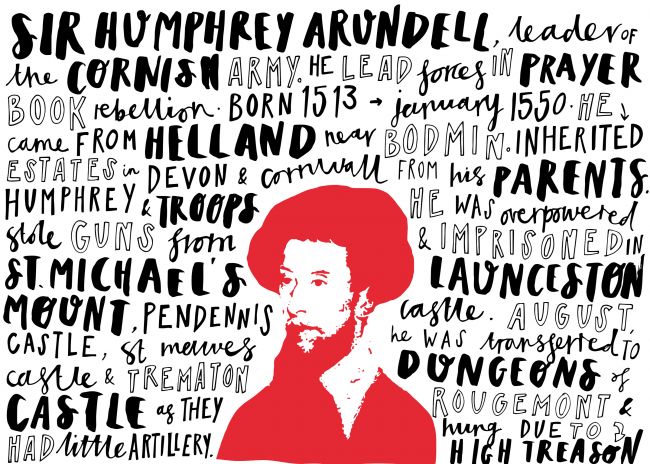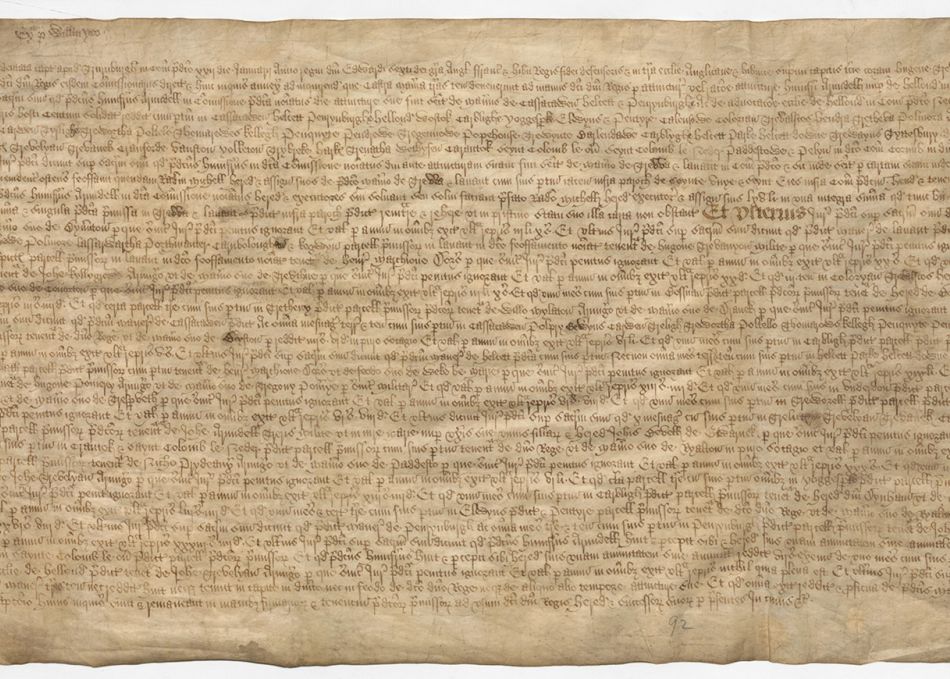Family background
Humphrey was born in 1512 or 1513. His uncle was Sir John Arundell of Lanherne, one of the richest and most powerful men in Cornwall. The Arundell family were also very faithful Catholics. Humphrey married Elizabeth Fulford and together they had three children. By 1537, both of Humphry’s parents had died and he took over the family home at Helland, near Bodmin.
Government duties
Humphrey was given the job of protecting St Michael’s Mount. He may also have served as a soldier in France.
In 1548, he was one of the people chosen to investigate the murder of William Body in Helston. William Body had been sent to Cornwall by the English government to destroy images of saints. The English government were trying to change religion in Cornwall from Catholic to Protestant. William Body was killed by people who were angry about these changes.
Army leader
Although Humphrey was a member of the ruling class he was also upset about the religious changes happening in Cornwall. In June 1549, Humphrey and a man called John Winslade (sometimes spelled Wynslade) gathered an army of over 3,000 Cornish people at Castle Canyke, near Bodmin. Humphrey made a list of complaints about the religious changes and sent it to the English government. He was particularly frustrated about the new English language Prayer Book and church service, because some Cornish people could not understand English.
We will not receive this new service because it is but like a Christmas game… And so we the Cornishmen (whereof certain of us understand no English) utterly refuse this new English Humphrey Arundell (1549)
Conflict
The English government refused to listen to Humphrey’s complaints. By this time, people in Devon had also gathered an army to resist the religious changes. Although Humphrey had not wanted to fight, he was left with no choice. Humphrey’s army quickly captured St Michael’s Mount, Trematon Castle and Plymouth. The Cornish and Devon armies joined together and surrounded Exeter for five weeks. The English government became so worried they brought foreign soldiers from Germany and Italy to fight against Humphrey’s army.
Capture
Throughout the summer of 1549, Humphrey fought several large and bloody battles. These battles became known as the Prayer Book Conflict. The English government’s army was bigger than Humphrey’s and eventually defeated it. Humphrey’s lands were taken from him and given to people who had fought for the English government. After his last battle at Sampford Courtenay in Devon, Humphrey escaped to Launceston. However, his servant John Kestell had been secretly working for the English government and revealed where Humphrey was hiding. He was captured and taken to London.
Death
On 22nd October 1549, the English government asked Humphrey questions about his role in the conflict. He said that he had not wanted to lead the Cornish people in war against the English government, but felt he had no choice. The English government decided that Humphrey and the other leaders of the Cornish and Devon armies should be executed (killed). On 27th January 1550, Humphrey, John Winslade, John Bury, Thomas Holmes and Henry Bray, were hanged, drawn and quartered at Tyburn in London.
Did you know?
Humphrey’s grandfather, Humphry Calwoodley, had taken part in the Cornish rising of 1497.












